Dog Not Eating? Here’s What Causes Loss of Appetite in Dogs
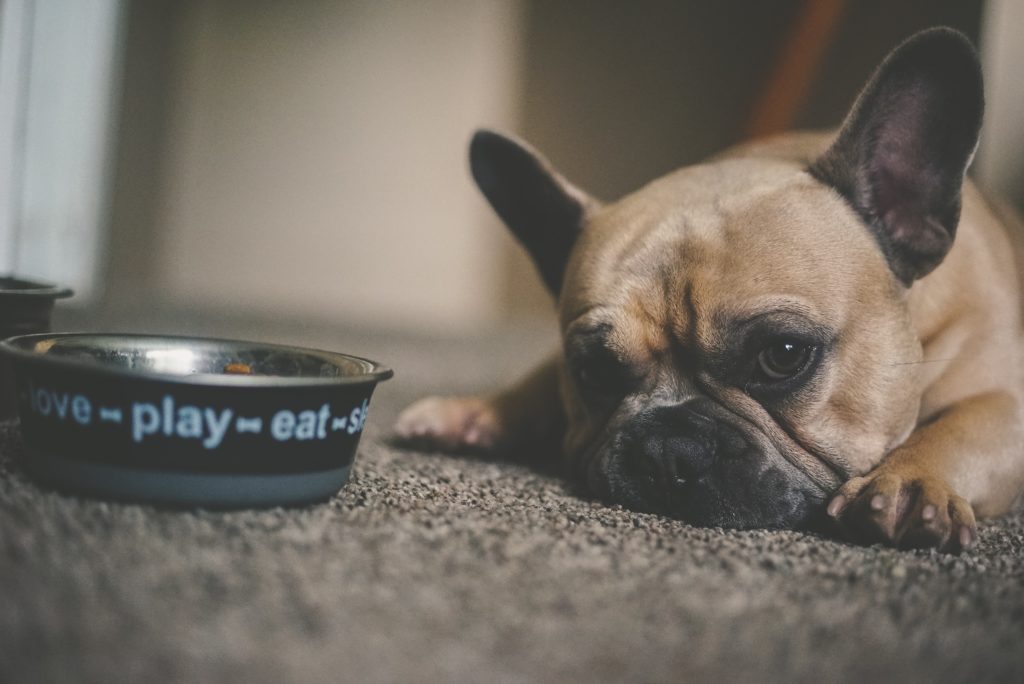
What causes loss of appetite in dogs? It can be really alarming when your pup just isn’t as hungry as usual. Especially if your dog normally has a strong appetite, or if this loss of appetite comes with a lack of energy and lethargy.
In many cases, a short-term loss of appetite isn’t a big deal. Increased stress and minor illness can cause a temporary loss of appetite, just as it can for humans. But sometimes, a loss of appetite could be related to a more serious issue.
The truth is, there are quite a few potential reasons for loss of appetite in dogs. Let’s go over some of the more common and uncommon reasons why your dog may not be eating, and what you can do to help the situation.
Symptoms of Loss of Appetite in Dogs
So how can you tell if your dog isn’t eating enough? In some cases, it may be obvious—your dog may refuse to eat anything at all. But other times, it may take some investigation to get to the root of the issue. Here are some general symptoms that could clue you in to your dog’s loss of appetite:
- Not eating as much as normal
- Being unable to finish a meal
- Not eating at all
- Not interested in treats
- Weight loss
- Lethargy or decreased activity
- Depressed or unusual behavior
If your dog has exhibited any of these symptoms, read on to learn the most common reasons for their loss of appetite.
Top Reasons Your Dog Won’t Eat
There are a number of reasons that could be the culprit for why your dog won’t eat. Here are the top reasons along with what you can do to remedy the situation.
Illness
Illness is one of the more common reasons your dog may not be as hungry as usual. Just as a common cold or fever can cause a loss of appetite in humans, this is also true with dogs.
If your pup isn’t showing any other symptoms of illness, monitor them closely and carefully. Specifically, keep an eye out for symptoms such as
- Change in behavior
- Stiffness or trouble walking/going up the steps
- Excessive sleeping
- Coughing, sneezing, or difficulty breathing
- Diarrhea or nausea
- Red or cloudy eyes
If your dog is showing signs of illness, do the safe thing and take them to the vet. A proper medical workup and treatment can do wonders for a sick pup.
Medication
Has your furry best friend been prescribed any new medications? Antibiotics and other prescriptions can often cause an upset stomach and loss of appetite in dogs.
Sometimes it can simply take a couple days to adjust to the new medication. If that’s the case, try warming up your dog’s food before serving it to make it more appetizing. You can also experiment with hand feeding, or trying out a new brand of dog food.
However, if their appetite doesn’t bounce back in a few days, you should contact your vet and seek their advice.
Dental Disease
Although less common, your dog could be suffering from dental disease. If the situation doesn’t improve in a day or two you should have your dog’s teeth and gums checked out by a vet. This will rule out gingivitis and damaged teeth.
You can examine your dog’s mouth yourself, but keep in mind that just because you can’t spot any issues doesn’t necessarily mean they’re not there. It’s always best to talk to a professional when you aren’t sure.
Recent Vaccination
Has your pup recently been vaccinated? It’s not uncommon for vaccinations to cause side effects such as a loss of appetite. The good thing is that these side effects are usually temporary and minor.
Travel and Unfamiliar Surroundings
Was your dog’s appetite fine before recently traveling or moving to an unfamiliar place? New environments can stress dogs out. If you’ve just moved or spent time traveling, this could potentially explain why your dog won’t eat.
It’s also not unheard of for dogs to get motion sickness from long car rides. Try rolling down the car windows a few inches. You can also give them a motion sickness medicine, but it might be best to check with your vet first to make sure you’re using the proper medication and dosage.
Finally, when you are in a new environment, do your best to make your pup feel comfortable and safe and they should go back to normal fairly soon. As long as this loss of appetite proves to be brief and temporary, it’s nothing to worry about.
Absence of Owner
Does your dog only refuse to eat when you’re gone? Dogs are pack animals, and sometimes they wait for the pack (that’s you!) to eat. It could also be a case of separation anxiety.
You can try leaving your pet sitter with some extra tasty food to give to your pup. As long as your dog does eat when you are around, you shouldn’t have anything to worry about.
That being said, if your dog goes on for days without eating you should contact your vet. They can potentially prescribe an appetite stimulant or a medication for treating anxiety.
Behavior Issues
At the end of the day, some dogs are just fussy. Others misbehave and refuse to eat in the hopes of getting some tasty table scraps instead. Another cause of behavior changes could be having unfamiliar dogs or people around.
It’s important to rule out other possibilities before assuming the cause is due to behavioral issues. You want to make sure your dog’s loss of appetite isn’t due to something more serious.
Time of Day
Your dog may prefer to eat at certain times of the day. This is normal, and there’s no one-size-fits-all answer as to when your dog should eat.
Experiment by feeding your dog at different times and see if feeding at a particular time improves the situation. It’s normal for some dogs to only want to eat at certain times.
Food Preferences
Have you recently switched to a new brand or variety of dog food? It’s possible that your pup is simply not a fan of their new food.
Take another look at your dog’s food. Sometimes manufacturers change or “improve” the formula of particular products. It could be a new version of the food that may not agree with your pup’s tastes.
And when you do decide to switch your dog’s food, it’s a good idea to do so gradually over a period of one to two weeks. Each day add a little bit more of the new food and reduce the old food by an equal amount.
And make sure to check the expiration date!
Old Age
It’s normal for your dog’s appetite to gradually decrease with age, especially if they’ve become less active as they’ve gotten older.
It’s possible that your dog just needs less fuel now that they’re expending less energy. Age can also slightly dampen their sense of smell and taste, which can exacerbate the problem.
If you’ve ruled out other serious complications, try taking your best friend out for more walks. Exercise is a great way to inspire a healthy appetite.
What to Do When Your Dog is Not Eating
Knowing the reason why your dog won’t eat will determine how to address the issue.
If your dog’s loss of appetite is brief and temporary, and your dog shows no other signs of illness, it’s probably nothing to worry about.
But if it’s been a few days and you haven’t seen any improvement, give your vet a call to help diagnose the problem and rule out a more serious illness.
Finally, make sure to check out the guide we created on how to get your dog to eat. You might find it helpful for picky eaters.
Puppy Not Eating Due to Illness
Is your dog not eating because they’re sick? If this is the case, you absolutely should take your dog in to get checked out. When addressing a possible illness, your vet may prescribe a special diet to boost their immune system and give them extra nutrients to help them to recover.
Keep in mind, your pup may not agree with this special diet. (It’s often not the tastiest diet, especially if your dog is accustomed to people food or lots of treats.) If that’s the case, you may eventually need to call your vet and discuss other options. They might suggest a liquid diet or even prescribe your pup an appetite stimulant.
In the meantime, try some of the following to help improve your dog’s appetite:
- Heat your dog’s food up before serving it.
- Try hand-feeding. Dogs who otherwise won’t eat often respond to hand-feeding.
- Add chicken broth or beef broth to the food to make it more appealing.
- Add warm water to their dry food to help soften it up.
- Try to feed your dog dry food if they usually only eat wet food, or wet food if they usually only eat dry dog food.
- Add some white or brown rice to your dog’s food.
Dog Stopped Eating Due to Behavior Issues
If you’ve ruled out sickness and determined that your dog’s refusal to eat is a behavior problem, here are a few ways to help treat the issue:
- Dogs are creatures of habit. Feed your pup at the same time every day to establish a routine. Two meals per day is a good sweet spot.
- Reduce the amount of people food and dog treats that you give your dog.
- Get your dog out for some exercise to work up the appetite!
- If you have other dogs, or are in a space that’s fairly noisy, try separating your dog and feeding them alone, where they might feel more comfortable.
- Get creative! Reward your dog for doing a trick. Feeding time can be a good opportunity to incorporate some training or implement new habits and tricks.
- Try a different kind of dog food, or add a little chicken broth to their dish.
Switch Up Your Dog’s Diet with Bully Max High Protein Dog Food
There are a lot of reasons your dog might lose their appetite. If they stop eating for a couple days but quickly go back to normal, it should be nothing to worry about. It’s important to stay calm but vigilant, and avoid jumping to conclusions when you’re wondering what causes loss of appetite in dogs.
Just remember to keep a close eye for any other symptoms of illness. Call your vet if your dog’s appetite doesn’t resume after a couple of days, or if they show any troubling signs of illness.
Finally, try some of the tips and techniques mentioned in this article to spur your dogs appetite. You can warm up the food before serving it, try hand-feeding, add some chicken broth, or try out a different brand of dog food.
Speaking of which: we offer a top-rated high protein dog food that’s full of high-quality, all-natural, human-grade ingredients. It’s packed with 535 calories per cup, making it a perfect choice for dogs who need more nutrition. We’re confident that your pups will love it!
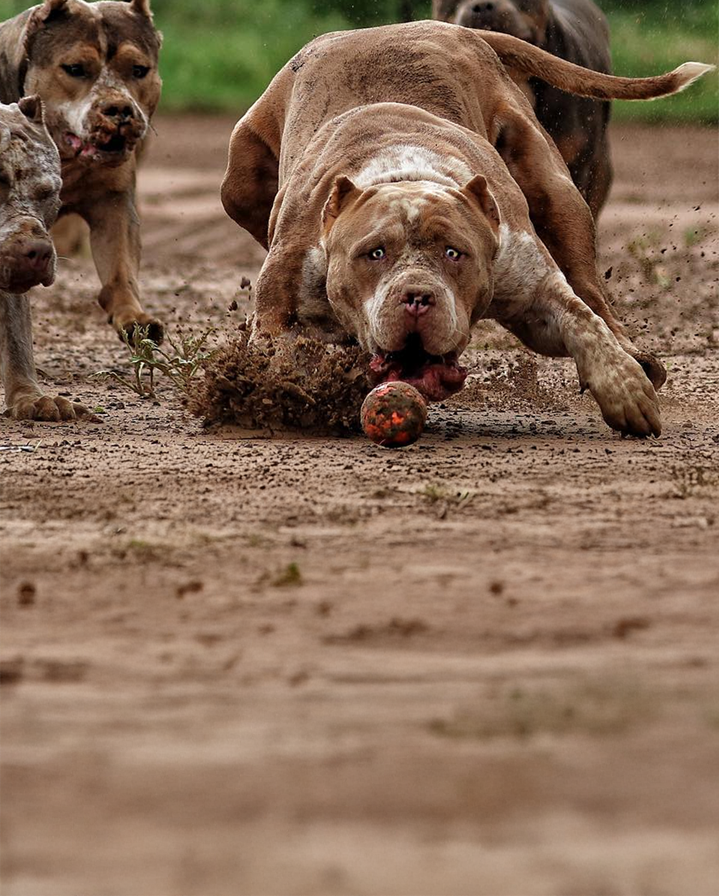

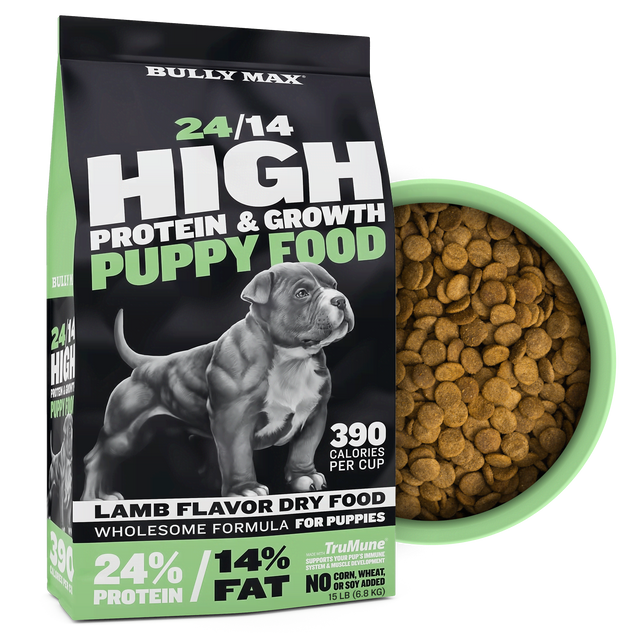
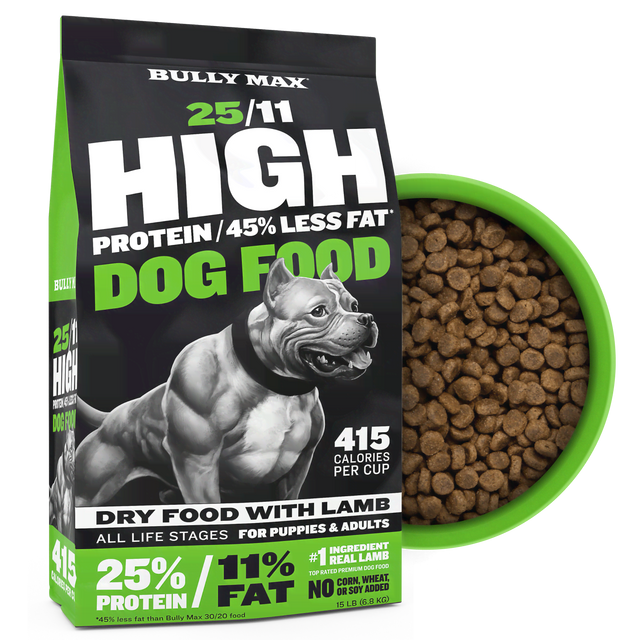
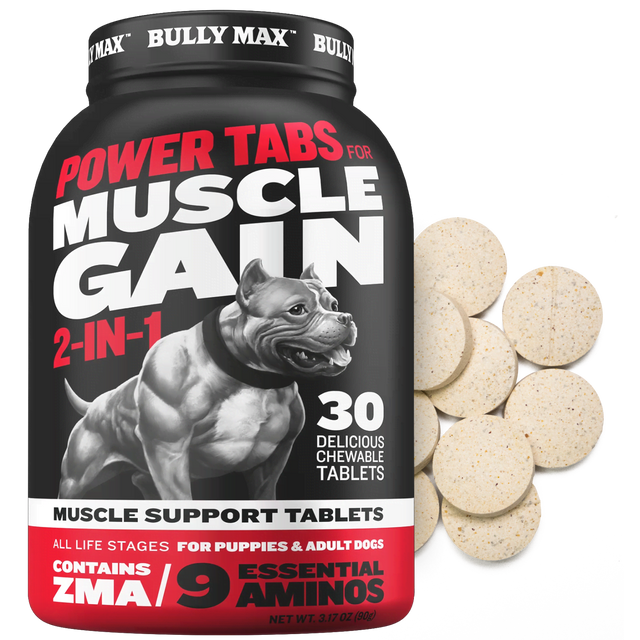




19 comments
I’ve tried everything, please help.
I’m in the process of trying different food as I’ve got 4 dogs two whom won’t eat and I’m concerned I’m trying different foods but there hooked on treats not sure what to do
Am a new mom to a puppy .can’t get her not to due nothing at all .this kinda helps
we recently moved to a new apartment and my dog started to lose weight very fast within 3 weeks she has lost over half of her body weight, we took her to a vet and they ran a blood panel, and took x rays, her tests came back and she had no cancer, no parvo, everything came back good only showing an irratied stomach,we took her outside and she passed worm eggs we called the vet and asked could she have worms the vet said I never thought of that , so I went to tractor supply and bought wormer aand gave it to her she has passed worms and eggs, she looked better acted better I bought Bully Max kibble and Bully Max supplement and she will not eat it she is an American Staffordshire terrior/ American bully mix we fed her hills science diet she use to eat anything , and everything she is an emotional support dog she means everything to us
My dog stopped eating hard food and only canned meat should I take him to his vet? But he doesn’t eat alot of it he was as put on medication for losing hair would that have some thing to do with this he doesn’t seem to be ill